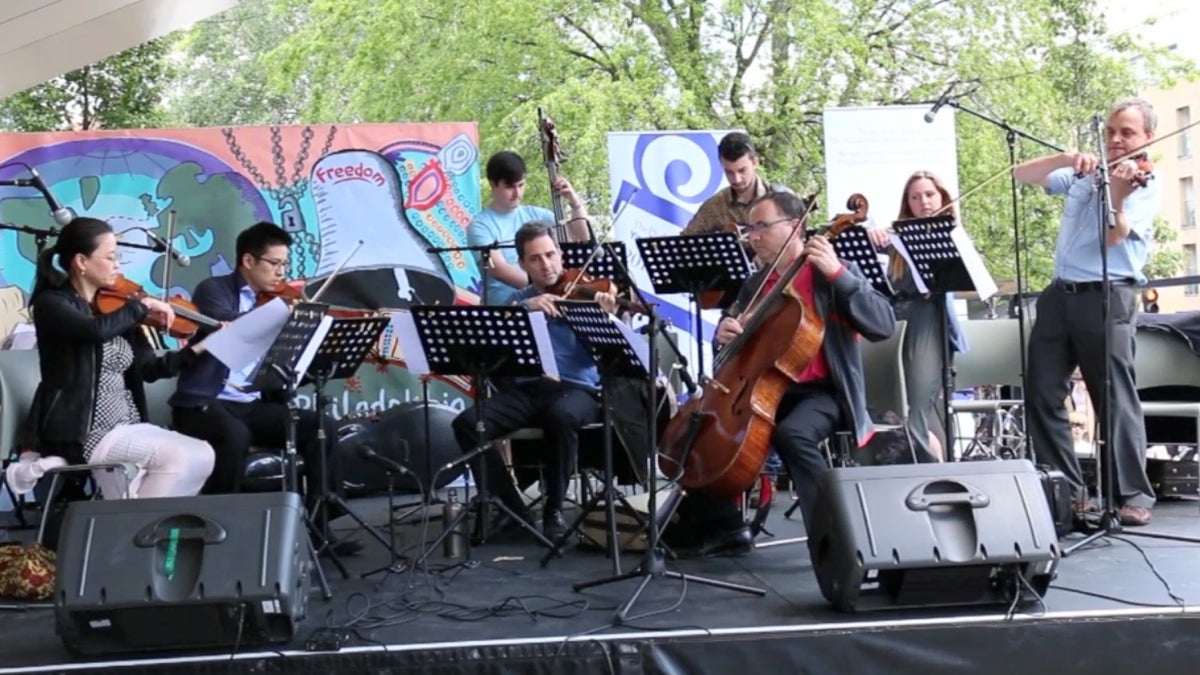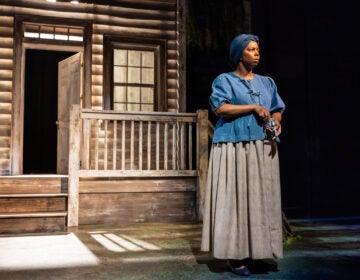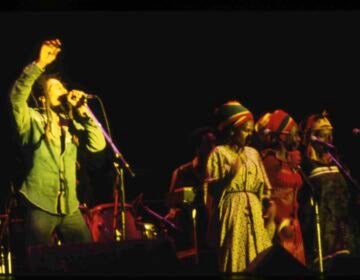At end of European tour, some see ‘start of new golden age’ for Philadelphia Orchestra
Listen
The Philadelphia Orchestra has wrapped up a triumphant three-week tour of Europe, playing 14 concerts in 10 cities, ending in London on Saturday.
There was a lot riding on this tour, the first led by Yannick Nézet-Séguin. His appointment as music director three years ago was not only meant to trigger the organization’s financial restoration, but lift the ensemble to higher levels of artistry.
“I imagined this would be something extraordinary, one of the great moments of our history,” said Nézet-Séguin. “It was every bit as great, even greater.”
Cities including Berlin, Paris, Vienna, and Amsterdam – the capitals of the Western classical canon – watched the budding relationship between the legendary Fabulous Philadelphians and its young star director.
“It’s at a time with the orchestra where we’re still so much in love, and we know each other better than we did three years ago,” said Nézet-Séguin in his dressing room before the final concert in London. “There’s so much emotion accumulated over three weeks. Vienna was so emotional for me, and then Amsterdam was too, and now London. Everybody needs a break to let it sink in.”
The feeling appears to be mutual.
“I think we’re starting a new golden age of the orchestra,” said Davyd Booth, who has been a violinist with the orchestra for 42 years, having played for the past five music directors. “The ovations I’ve seen – I’ve never seen the almost hysterical ovations. The end of a concert is almost like a rock concert. It’s so intense and overt.”
Beyond the concert halls
The orchestra did not just play concert halls. Some musicians — a string quartet — performed an outdoor pop-up concert in a depressed East London neighborhood that is seeing dramatic improvements through an experimental community effort.
A neighborhood school, which eight years ago was threatened with closure for its dangerous environment and subpar academics, was taken over by the St. Paul’s Way Foundation, a partnership involving the University of London, King’s College London, and the Institute for Education.
Now, the St. Paul’s Way Trust School is a national model for urban revitalization, successfully integrating education, health care, and business enterprise.
“We do not live in silos,” said Lord Andrew Mawson, founder of the Bromley-by-Bow Centre and a partner in the neighborhood’s turnaround. “Education, business, health – everything is integrated.”
The orchestra’s participation in the St. Paul’s Way annual street festival – at the high school’s new £40 million building – is aligned with Mawson’s vision of blending entrepreneurship, culture, and education. In turn, the St. Paul’s Way students presented the orchestra with a Philadelphia-themed mural.
“We’re building a 100-piece orchestra,” said Mawson. “There were common strands. We work with artists who do murals. We want to link the world tour of the orchestra and the street that is a world community.”
For it performance at street festival, the string quartet from the Philadelphia Orchestra collaborated with a folk ensemble from the Trinity Laban Conservatoire in South London, working up arrangements of a traditional Romanian folk tune and a shape-note hymn by the 18th century clergyman Charles Wesley.
“We’re bringing our symphony chamber music sound to theirs, which is very folk and improvisatory,” said orchestra cellist Ohad Bar-David. “It’s an adventure, but worked out great.”
Improvising is not something in the kit bag of the highly trained musicians of the orchestra. However, modern orchestra music is sometimes played off the page, as some modern composers write music with loose musical instructions, rather than specific notes.
“You play the dots of the music, but more and more there are other skills classical musicians have that they would not have 20 years ago,” said Joseph Townsend, head of collaboration at Trinity Laban Conservatoire and leader of the folk ensemble. “These musicians are very good at that.”
A preview of future in Philly
The orchestra is changing, and the point of this European tour was to show the world what the future of the Fabulous Philadelphians looks and sounds like.
It’s not just the orchestra who thinks highly of itself. European critics have weighed in on the tour, calling the orchestra “more than ever one of the best symphonic ensembles we have today” (Gilles Lesur, Concertonet.com); “Nézet-Séguin made the score burn from start to finish” (Walter Weidringer, DiePresse); together, they’re “the new dream team” (Florian Krenstetter, Kronen Zeitung).
“I never doubted this orchestra would not perform extraordinarily – but this was the first time. I wanted to prove it,” said Nézet-Séguin. “This is the point. It’s great that people can notice it. It encourages us to do the work we are doing in Philadelphia.”
Nézet-Séguin cemented his relationship with Philadelphia a few months ago when he announced he would step down as music director of the Rotterdam Philharmonic in 2016. He said he would not be able to give Rotterdam what it needs, because he wants to spend more time with Philadelphia.
WHYY is your source for fact-based, in-depth journalism and information. As a nonprofit organization, we rely on financial support from readers like you. Please give today.





